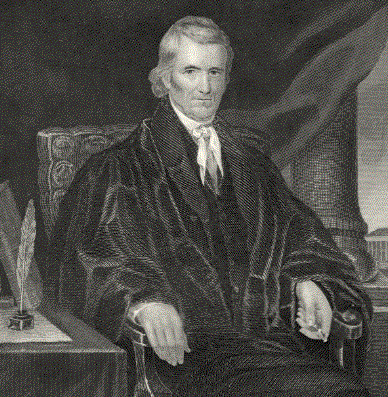Sovereign Nation Era Ends 1800-1827
1823
Supreme Court cites Doctrine of Discovery, rules American Indians do not own land

The Supreme Court decides the first of three major cases (the Marshall Trilogy) that set the foundation for Indian law. In Johnson v. McIntosh, Chief Justice John Marshall invokes the Doctrine of Discovery as a foundation for Indian removal and seizure of Native lands: “The principle of discovery gave European nations an absolute right to New World lands.” American Indians only have a “right of occupancy” and do not have title to their lands. The title to land (ownership) always lie with its “discoverer,” not the inhabitants. This decision not only sets the precedent for Indian removal (e.g., Trail of Tears) but also provides legal justification for the U.S. government to strip Native people away from their traditional homelands, territories they have lived on since time immemorial. Other cases in the Marshall Trilogy are Cherokee Nation v. Georgia (1831) and Worcester v. Georgia (1832) (Native Voices, "1823: Supreme Court rules American Indians do not own land").